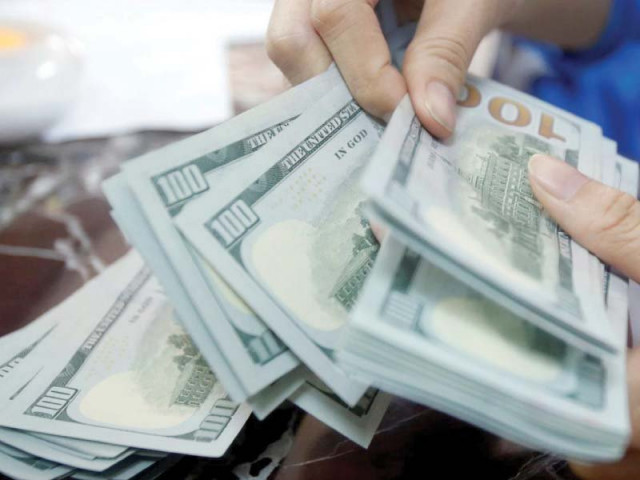In Pakistan, banks' foreign reserves continue to drop
Reserves depleted by around $1b from August 2019 to January 2020

Pakistan's foreign currency reserves are consistently on the rise for the past seven months. PHOTO: REUTERS
The commercial banks' reserves depleted by around $1 billion, or 13.5%, to a 14-month low at $6.37 billion on January 31, 2020 compared to $7.36 billion on August 17, 2019, according to the State Bank of Pakistan (SBP).
The drop in the commercial banks' foreign currency deposits is simply linked with around 6% drop in value of the US dollar against the local currency (rupee) since June-end and the rate of return on rupee-based deposits which became hugely attractive than nominal return on foreign currency deposits at banks, experts said.
But in addition to this, the State Bank of Pakistan's (SBP) decision to allow commercial banks to make advance payments of up to 100% for imports after the central bank returned around $2 billion to commercial banks in loan in the recent past; barring non-filers of tax returns from opening foreign currency accounts around a year ago; and withdrawal of such deposits by accountholders on rumours that the reserves-strapped government may seize foreign currency deposits to avert default on import payment and debt repayments are apparently some other reasons behind the decline in reserves held by commercial banks, they added.
An official at a well-known bank informed that the central bank has returned around $2 billion to commercial banks in recent months. Earlier, the central bank had borrowed almost entire foreign currency deposits at commercial banks.
In addition to this, the return of stability and then recovery in rupee against the dollar and the government's resolve to gradually soften rules to step up economic activities prompted the central bank to allow commercial banks to make advance payments for imports, analysts said.
"Commercial banks make advance payments for imports from the foreign currency reserves (deposits) held by them," Taurus Securities Deputy Head of Research Mustafa Mustansir told The Express Tribune.
The central bank allowed commercial banks making advance payments up to 100% in phased manners. It allowed them to make the payment of up to $10,000 in November, by up to 50% in December and now up to 100% on import of machinery, plant and raw material in late January.
One cannot also rule out that the depositors withdrew foreign currencies from their accounts on rumours that the government was considering ceasing their accounts to avert the then default on import payment and debt repayment. "The government, however, did not do so, nor was it apparently intended to do that," he said.
JS Global Head of Research Hussain Haider recalled the foreign currency reserves had continued to increase at commercial banks, while the ones held by the central bank depleted in the past when rupee-dollar parity was extremely volatile and the local currency lost over 55% during December 2017 to June 2019.
Now, the situation is on reverse. The rupee is gaining ground against the greenback. SBP reserves are on rise and the reserves held by commercial banks are declining, he said.
"The two different trends occurred at different times suggesting foreign currency depositors made maximum possible saving at times dollar was gaining and now they are spending the saving in foreign currency when return on local currency deposits stands comparatively much higher," he said.
Banks are offering up to 12% return on rupee-based fixed deposits against 1-2% on foreign currency deposits.
Foreigners have invested close to $3 billion in rupee-based sovereign debt securities (T-bills and Pakistan Investment Bonds) since July to date.
An analyst recalled the government barred non-tax filers from opening accounts in foreign currencies around a year ago. How can deposits grow when the number of depositors remained stagnant, he questioned.
SBP reserves up
Pakistan's foreign currency reserves are consistently on the rise for the past seven months. They soared to an almost two-year high at $12.27 billion on January 31, 2020 compared to the then multi-year low at $7.08 billion on July 5, 2019, according to SBP.
The reserves are on rise mainly due to 75% contraction in current account deficit (CAD) due to 20% drop in import of goods. Besides, foreign investment in sovereign debt securities and International Monetary Fund's (IMF) two tranches totalling around $1.5 billion since July also helped significantly building up SBP reserves.
Published in The Express Tribune, February 9th, 2020.
Like Business on Facebook, follow @TribuneBiz on Twitter to stay informed and join in the conversation.



















COMMENTS
Comments are moderated and generally will be posted if they are on-topic and not abusive.
For more information, please see our Comments FAQ